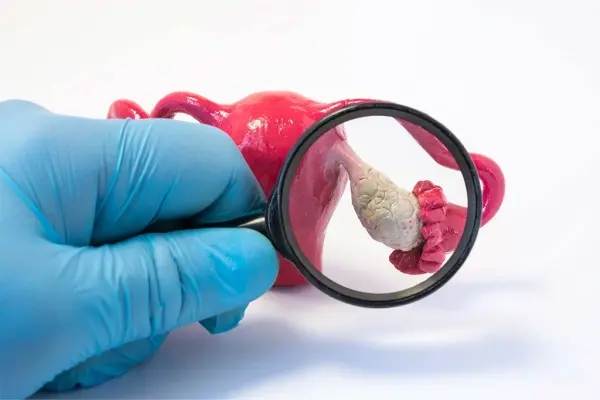Ovarian Cysts Treatment
Ovarian Cysts Treatment
Ovarian cysts, fluid-filled sacs that develop on the ovaries, are a common occurrence in many women. While most ovarian cysts are harmless and often disappear on their own, some may require treatment, especially if they cause symptoms or complications. Understanding the available treatment options is crucial for managing ovarian cysts effectively.

1. Watchful Waiting
For small, asymptomatic ovarian cysts, doctors may recommend a “watchful waiting” approach. This involves monitoring the cyst over time with regular check-ups and imaging tests to ensure it doesn’t grow or cause any problems. In many cases, these cysts resolve on their own without the need for intervention.
2. Medications
In some instances, hormonal contraceptives such as birth control pills may be prescribed to help regulate the menstrual cycle and prevent the formation of new cysts. Additionally, nonsteroidal anti-inflammatory drugs (NSAIDs) like ibuprofen may be used to alleviate pain associated with ovarian cysts.
3. Surgical Options
a. Cystectomy: If a cyst is large, causing symptoms, or appears suspicious, a surgeon may opt for a cystectomy, which involves removing the cyst while preserving the ovary.
b. Oophorectomy: In cases where a cyst is cancerous or if there are concerns about ovarian cancer, the affected ovary may need to be removed in a procedure called oophorectomy.
c. Laparoscopy: Many ovarian cyst surgeries are performed using minimally invasive techniques such as laparoscopy, which involve small incisions and shorter recovery times compared to traditional open surgery.
4. Natural Remedies and Lifestyle Changes
While there’s limited scientific evidence supporting the effectiveness of natural remedies for treating ovarian cysts, some women find relief from symptoms through lifestyle changes such as maintaining a healthy weight, reducing stress, and incorporating dietary changes like increasing fiber intake and avoiding caffeine.
About Us
Gynecological consultations at Ashirwad Clinic are a cornerstone of its services. With expertise in addressing a myriad of women's health concerns, the clinic offers a safe and welcoming environment for patients to discuss their needs. Whether it's managing menstrual irregularities, diagnosing PCOD.
Quick Contacts
- Address : Shop No-2, A-53, opposite Patanjali Store, Swarna Jayanti Nagar, Aligarh, Uttar Pradesh 202001
- Phone : +91 7906148352, 9871165086.
- Email : ashirwadclinic@gmail.com
- Country : India
